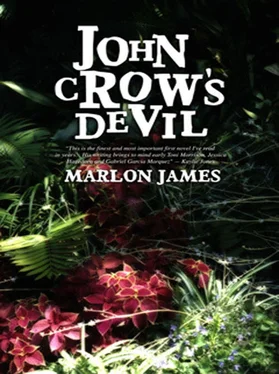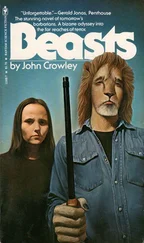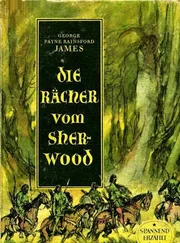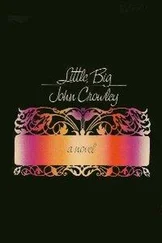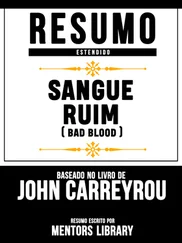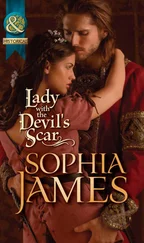And yet the plantation died, wounded by a dastard class of white men who fled back to the mother country. The ones who stayed either denied or reveled in their decline as fields dried up or were taken over by land reform. Neighbors disappeared; the mother country enforced Crown Colony government, and lesser suitors like beet dethroned King Sugar. In their place rose a new breed of white man who was sometimes black. They were merchants, machine men, and dealers, men who brought the Americans. Men who turned plantations into guesthouses or hotels if they were near the sea. Moneymaking shifted to a new kind of Massa. Men like Aloysius Garvey.
By 1928, Mr. Aloysius Garvey had bought, built, and owned most of the land. He renamed the village Garveyville, but everybody kept on calling it Gibbeah. He was a thin man, almost skeletal, even when he was young, with negro lips and dark skin at war with his hooked nose and straight hair. Though a black bastard unacknowledged by his white father, he still had a birthright to money. But he was a man out of time with neither wife nor peer. His large red house, built like a plantation’s Great House, stood at the top of Brillo Road and stank of death. With a cut-stone ground floor and a wooden floor on top, the house was crowned with an arch roof and garnished with astrological fretwork. French windows held dark curtains that revealed no secrets. In time and with grime, people forgot that the house was red and called it black. There was a rumor that he was a sodomite and there was the matter of his several light-skinned nephews, but word was wind in Gibbeah.
Mr. Aloysius Garvey, being the owner of the village, declared how he wanted Gibbeah to look. In 1928, he made all houses face the street and painted them rusty red. During Lent when there was drought, dirt would stick to the walls and the village would seem as if trapped in the eye of a dust storm. The houses were all alike, with creaky verandahs and double doors that opened into a small living room with bedrooms flanking both sides. The living room, which was really a hallway, led into the dining room, which some used as the living room. To the left of the dining room was the kitchen. Piped water came twenty-three years later when Bligh did in 1951. There were only two roads in Gibbeah. Mr. Garvey had the idea to build the houses along the pattern of the crossroads, but he could not stop the others, the squatters, from building rickety shacks as they saw fit. Still, when the new houses popped up, they took on the colors of the old ones. Gibbeah was bordered by a river, which swung around the village in a circle like a moat. The bridge was the only way in or out.

Ash Wednesday morning had come and the crows were gone. This was one of five mornings when Mr. Garvey went out in public, except for the funerals of those of stature or those who died under tragic circumstances. Funeral was spectacle in Gibbeah. Black clothing was foreign and expensive, sent over to the village in barrels from relatives living in America, England, or Panama. They were winter clothes, velvets, corduroys, denims, and wools that would conspire with the sun to bake the wearer while sucking his sweat. But there was no spectacle like the Garvey procession. Marching in slow step like pallbearers without a coffin, Mr. Garvey with his nephews in one line behind him would take the left row at the front of the church. He would sit near the window, not bothering to take off his maroon hat with pink trim even in church, and his nephews would fill out the row in descending order of height. Some would gossip that they sat in descending order of color, with the lightest child beside Mr. Garvey and the darkest by the aisle, so that he could be the closest to black people. Before the service was over, he would rise, run his thin fingers over his black pin-striped suit, and his nephews would rise as well. In a line they would leave, the youngest nephew in front and Mr. Garvey in the back, who would toss some money at the altar and march through the door, his coattails flapping in the breeze. But this Ash Wednesday, as church was about to start, there was no sign of Mr. Garvey. Many were curious, but most were like Lucinda, who dismissed such things. Naturally, a man who was so rich that he made black white, would sooner or later stop coming to black people church. Especially a sodomite who was on his way to Hell. Country people took his absence as they took everything else.
But this morning the Rum Preacher was sober. Many forgot how tall he actually was, so like Gregory Peck midway between Roman Holiday and Moby Dick , which were still shown as a double feature at the Majestic. Pastor Bligh was wiry, a giant in the village. But disgrace diminished him. Guilt threw a curve in his back and a hunch in his stance. He had a square jaw with thick eyebrows over thin eyes and short, graying hair that was white at the temples. He was not a dark man, but not light either. His color was a nebulous thing, so like his voice, which was too low to be weak but too reedy to be commanding. In a town that preferred things black or white, grayness such as his was not welcome.
Bligh refused friendship. His sermons even when he was sober rocked with the terror and uncertainty of a man not in control. When the spirit came over him, he was racked without mercy, and left with sweat and tremors. Outside church they avoided him, lest the spirit assail him at that very moment and God punish them too. Sin, guilt, conviction, and redemption: things he may have spoke of, but always carried in the shakiness of his voice.
The church service began at 8:15. The sun was subdued by a mob of reddish gray clouds. Wind slammed the church doors shut. She whispered and taunted through door spaces and half closed windows. Then the doors swung open and wind rushed in, knocking off hats and veils and sweeping up skirts and dresses. For a few seconds the church went to pieces. The wind forced herself all the way up to the altar and knocked over the Pastor’s water glass, which fell on the purple carpet but did not break. Then she vanished.
The organist raised a hymn and within seconds the usual people were at the altar praying, praising, and yelling. Pastor Bligh had a word today. The word was flesh before he was flesh. Not his to claim, just to say. This was a burden he felt unfit for, but what right had he to the anguish of the major prophets? He was humbled that God had tolerated him for so long. But God was leading and he had to follow. Duty, then, not pleasure or purpose. He stood up, without having to correct his balance, and sung with the church.
It soon be done
All my trouble and trial
When I get home
On the other side
I’m gonna shake my hands with the elders
I’m gonna tell all the people good morning
I’m gonna sit down beside my Jesus
I’m gonna sit down and rest a little while!
The church was caught up in chorus singing and Hallelujah shouting. Women and men were dancing before the Lord and confessing his greatness. From the back of the half filled church came a sound like the crash of a tambourine. But from the front, the shattered stained glass window fell like rain. One of the John Crows from before had flown into the window, bursting through like a bullet, exploding in multicolored glass and blood. The organist saw nothing but the choir panicked. Lucinda screamed as the John Crow landed dead on the pulpit. Disgusted, those at the altar went back to their seats. Pastor Bligh instructed The Five to remove the vulture. They hesitated. John Crows were messengers of the Devil — everybody knew it. The Pastor kicked the vulture from the pulpit to the floor. One of The Five took the bird through the door, leaving a trail of blood spatter.
Читать дальше
